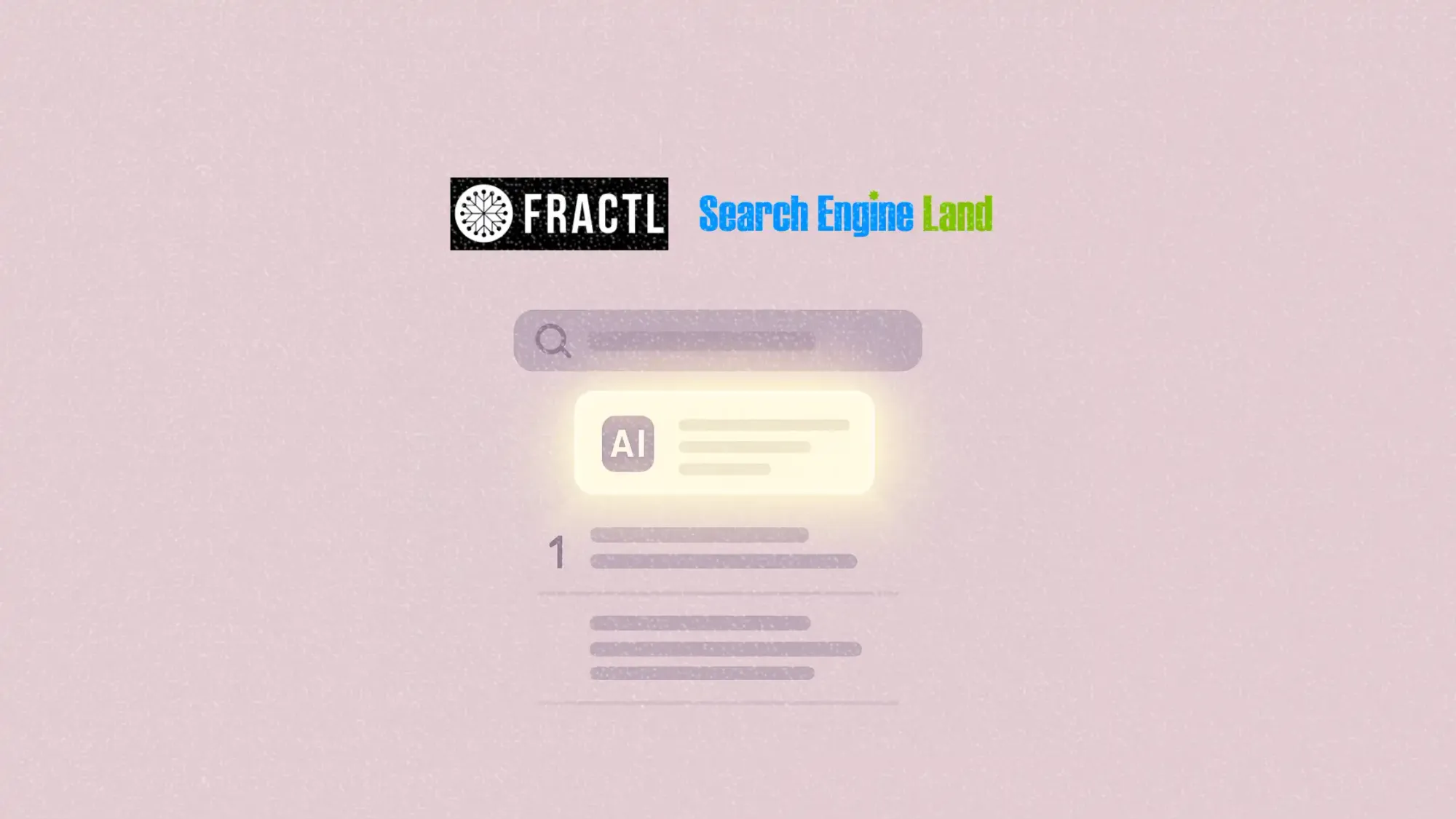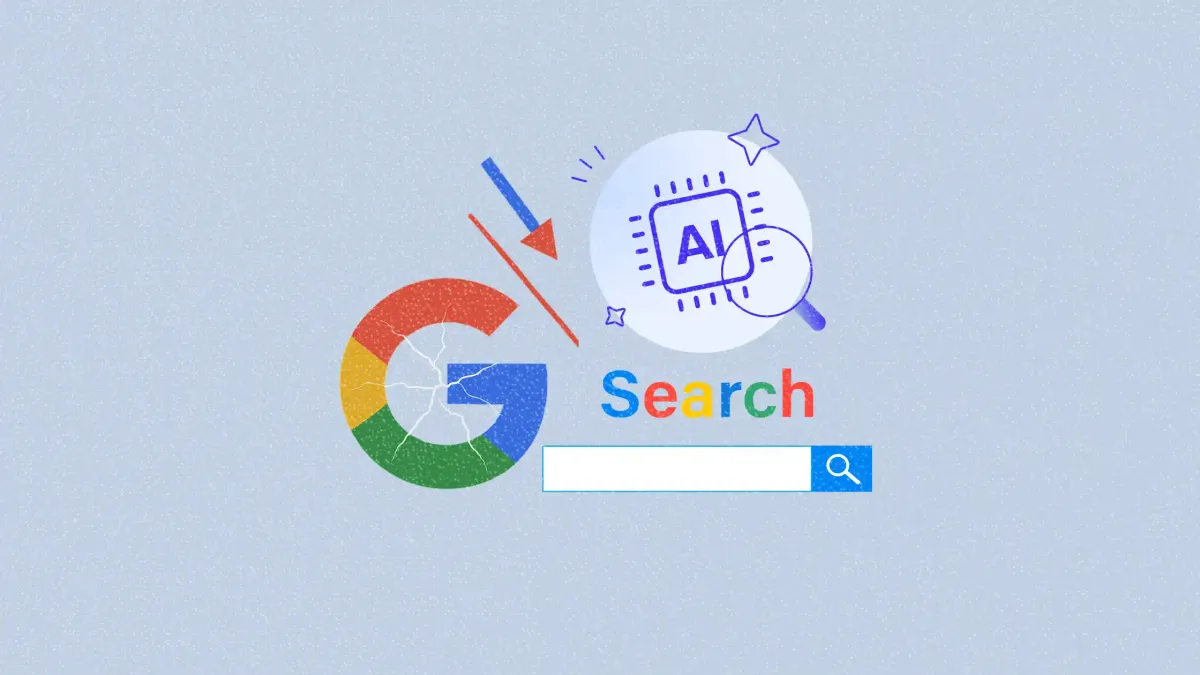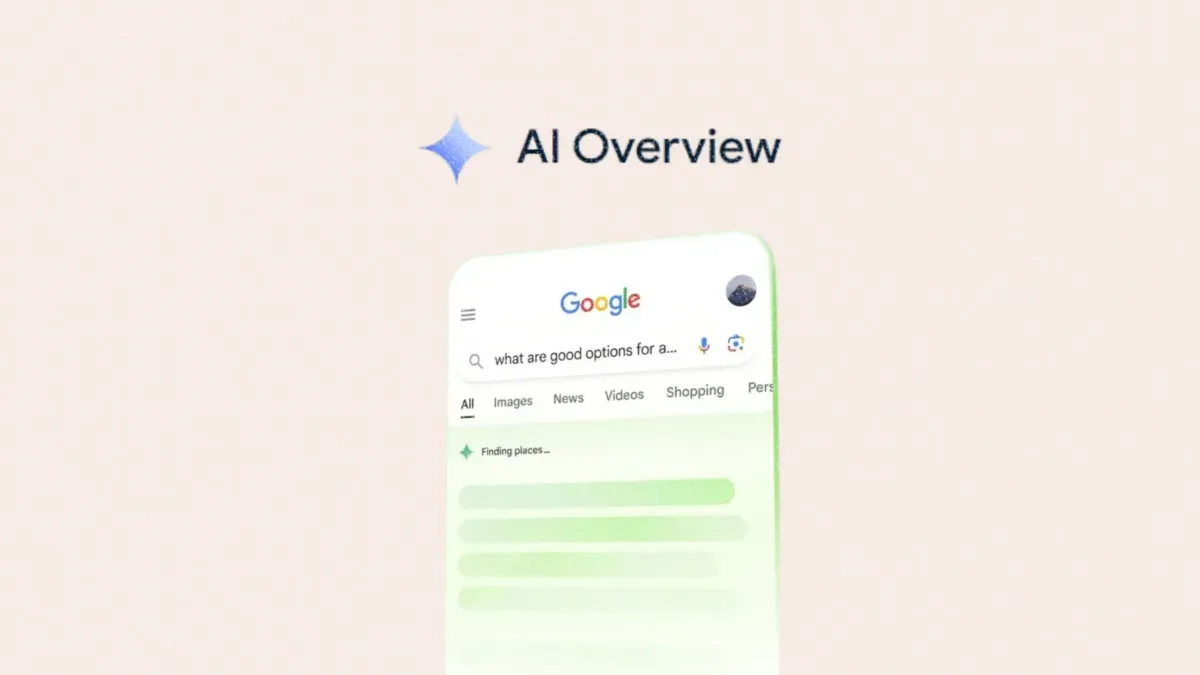AI search is stealing your traffic, even when you rank #1
Ranking #1 isn’t what it used to be. Here’s how AI summaries are changing the SEO game

Marketers are watching their organic traffic drop, even when they’re ranking at the top of Google.
According to a new study by Fractl and Search Engine Land, 39% of marketers say their website traffic has declined since the launch of Google’s AI Overviews in May 2024.
But the culprit isn’t lost rankings. It’s lost clicks. Users are getting the answers they need directly from the AI-generated summary at the top of the page, bypassing traditional search results.
The research, surveyed over 1,000 marketers and consumers to understand how AI is reshaping the way people search, trust, and engage with content.
This article explores how AI Overviews are changing user behavior, why high rankings no longer guarantee visibility, and what marketers must do to stay in the game.
Short on time?
Here is a table of content for quick access:
- AI Overviews are cutting into organic traffic
- Being #1 doesn’t mean being seen
- Winning SEO means being in the summary
- What marketers should do next

AI Overviews are cutting into organic traffic
Search traffic is down and AI is the reason.
Google’s AI Overviews now dominate the top of many search results pages. These summaries answer questions instantly, reducing the need for users to scroll down or click into any website. While rankings haven't necessarily changed, clicks have nosedived. It’s a user behavior shift, not an algorithm update.
Some industries are feeling it more than others. Tech marketers report the sharpest impact, with 44% seeing traffic declines. Travel and hospitality follow closely at 43%, and retail and ecommerce sit at 35%.

These sectors rely heavily on high-intent search traffic and detailed content, which are the kinds of queries AI Overviews are now answering directly.
Being #1 doesn't mean being seen
Google’s AI Overviews sit above the blue links. That means even the top-ranking page can be completely skipped if the AI box satisfies the query.
This is not a bug. It is the new reality.
The search experience has fundamentally changed. Google is no longer just pointing people to information. It is summarizing it. That shift makes traditional SEO metrics like “ranking #1” less meaningful if no one scrolls far enough to see your content.
In this new landscape, ranking without visibility means your content is invisible to the user.

Winning SEO means being in the summary
If AI Overviews are the new front page of the internet, then the goal has changed.
It’s no longer enough to rank high. You need to be referenced in the AI itself. That means being quoted, cited, or directly summarized inside the AI Overview. If your brand doesn’t show up in the AI layer, your visibility is capped, regardless of how well your site is optimized.
Google has not disclosed exactly how sources are selected for Overviews, but early analysis suggests that entities with strong topical authority, structured data, and content clarity are more likely to be cited. In other words, Google’s AI is curating answers from sources it trusts. You want to be one of them.

What marketers should do next
To stay visible in AI-dominated search results, SEO strategies must evolve. Here are three ways to stay ahead:
1. Optimize for AI inclusion
Treat AI Overviews like featured snippets with more power. Prioritize concise, well-structured content that directly answers common questions. Use schema markup, FAQs, and authoritative sources to increase your chances of being cited.
2. Track visibility inside AI, not just rankings
Traditional rank tracking tools won’t tell you if your content appears in AI Overviews. Consider adding visibility audits to your search monitoring. Tools like AlsoAsked and Semrush’s SERP features reports can help uncover which queries trigger AI Overviews and whether your site is part of the response.
3. Double down on brand authority
If Google’s AI chooses sources based on trust and clarity, then building a strong, recognizable brand is more important than ever. Invest in expert content, PR mentions, and thought leadership that signals credibility to both users and search engines.
Google’s AI Overviews are reshaping the entire search experience. Top rankings are no longer a guarantee of traffic. If you are not part of the AI’s answer, you may not be seen at all.
Marketers must adapt quickly. That means rethinking how SEO performance is measured and shifting focus from just rankings to inclusion in AI results. The brands that win will be the ones that show up where attention actually lives, which is inside the answer box.






